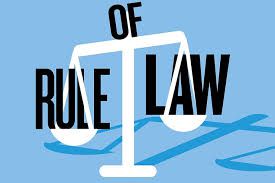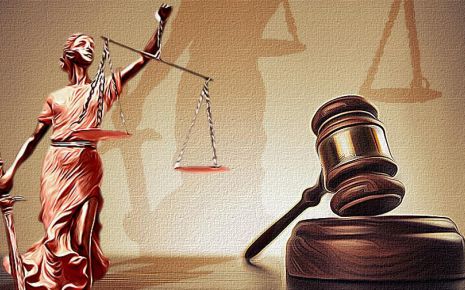Legislative Functions of Administration
Administrative Law pertains to the legal framework governing the actions of
government administrative agencies. These actions encompass activities such as
rule-making, adjudication, and the enforcement of specific regulatory agendas.
Positioned within the realm of public law, Administrative Law's development has
left certain key concepts unresolved.
One such unresolved aspect is whether its primary aim is safeguarding legal rights and interests or curbing government power. Administrative Law, as a subset of public law, focuses on the procedures, rules, and regulations guiding various governmental entities. For instance, the oversight and functioning of the Social Security Administration, including the administration of benefits to the populace, exemplify the application of Administrative Law.
Research Objective:
This Research Paper Talks About The Topic Legislative Functions Of Administration. This Research Paper Also Deals With What Is Administrative Law.
Research Problem
The Research Problem Of This Research Paper Talks About Legislative Functions Of Administration.
Research Question
Descriptive And Analytical Methodology Has Been Followed By The Researcher Throughout The Research Paper. Secondary Sources Like Books, Articles And Websites Have Been Referred By The Researcher For The Accomplishment Of The Research Paper.
Legislative Functions Of Administration
The Method Under These Sub-Heads For The Application Of The Rule Of Ultra Vires Is Described As The Method Of Substantive Ultra Vires. Here The Substance Of Rules And Regulations Is Gone Into And Not The Procedural Requirements Of The Rule Marking That May Be Prescribed In The Statute. The Latter Is Looked Into Under The Procedural Ultra Vires Rule. When The Court Applies The Method Of Substantive Ultra Vires Rule, It Examines The Contents Of The Rules And Regulations Without Probing Into The Policy And Wisdom Of The Subject Matter.
It Merely Sees If The Rules And Regulations In Their Pith And Substance Are Within The Import Of The Language And Policy Of The Statute. The Rules Obviously Cannot Go Against The Intent Of Statute And Cannot Be Inconsistent With The Provisions Of The Act. They Are Framed For Giving Effect To The Provisions Of This Act And Not For Nullifying Their Effect And They Should Not Be In Excess Of The Authority Delegated To The Rulemaking Body.
Delegated Legislation Should Not Be Characterised With An Excessive Exercise Of Discretion By The Authority. The Rules Cannot Be Attacked To The General Plea Of Unreasonableness Like The Bye-Laws Framed By A Local Body. Reasonableness Of The Rules Can Be Examined Only When It Is Necessary To Do So For Purpose Of Articles 14 And 19 Of The Constitution.
Sub-Delegation
The Expression 'Subordinate Legislation' Means The Act Of Making Statutory Instruments By A Body Subordinate To The Legislature And In Exercise Of The Power, Within Specific Limits, Conferred By The Legislature. The Term Also Connotes And Covers The Statutory Instruments Themselves. Legislation Is Either Supreme Or Subordinate.
The Former Is That Which Proceeds From The Supreme Or Sovereign Power In The State, And Which Is Therefore Incapable Of Being Repealed, Annulled Or Controlled By Any Other Legislative Authority. Subordinate Legislation Is That Which Proceeds From Any Authority Other Than The Sovereign Power, And Is, Therefore, Dependent For Its Continued Existence And Validity On Some Superior Or Supreme Authority.
The Idea Is To Supplement Acts Of Supreme Legislative Body By Prescribing Detailed Rules Required For Their Operation. Principle Underlying Sub-Delegation The Basic Principle In This Respect Is That The Sub-Delegate Should Not Be Given Unanalyzed And Unguided Legislative Power. Like Delegation, Sub-Delegation Is Also Subject To The Doctrine Of Excessive Delegation.
Where A Statute Itself Authorizes An Administrative Authority To Sub-Delegate Its Powers, No Difficulty Arises As To Its Validity Since Such Sub-delegation Is Within The Terms Of The Statute Itself. Sub-Delegation Of Legislative Powers When A Statute Confers Some Legislative
Powers On An Executive Authority And The Further Delegates Those Powers To Another Subordinate Authority Of Agency, It Is Called 'Sub-delegation.' Thus, A Chain Of Delegation Gets Created In Which The Origin Of The Power Flows Through The Parent Act. Sub-Delegation Is The Further Delegation Of Power By A Delegate To Another Person Or Agency.
The Basic Principle In This Process Is Summarised By The Maxim 'Delegatus Non Potest Delegare, Such Sub-Delegation Can't Be Made Without The Duly Authorisation By The Parent Statute Under Which The Delegation Has Been Taken Place.
One such unresolved aspect is whether its primary aim is safeguarding legal rights and interests or curbing government power. Administrative Law, as a subset of public law, focuses on the procedures, rules, and regulations guiding various governmental entities. For instance, the oversight and functioning of the Social Security Administration, including the administration of benefits to the populace, exemplify the application of Administrative Law.
Research Objective:
This Research Paper Talks About The Topic Legislative Functions Of Administration. This Research Paper Also Deals With What Is Administrative Law.
Research Problem
The Research Problem Of This Research Paper Talks About Legislative Functions Of Administration.
Research Question
- What Is Administrative Law?
- What Are Legislative Functions Of Administration?
- What Is Administrative Law And What Are Legislative Functions Of Administration. What Is Its Role In Indian Administrative Functions? What Are The Changes Required?
- What Is Administrative Law And What Are Legislative Functions Of Administration. What Is Its Role In Indian Administrative Functions?
Descriptive And Analytical Methodology Has Been Followed By The Researcher Throughout The Research Paper. Secondary Sources Like Books, Articles And Websites Have Been Referred By The Researcher For The Accomplishment Of The Research Paper.
Legislative Functions Of Administration
- Meaning And Concept Of Delegated Legislation
Delegated Legislation, also known as secondary legislation, subordinate legislation, or subsidiary legislation, refers to the creation of laws by an executive authority using powers granted by primary legislation. This primary legislation empowers the executive branch to implement and administer the requirements outlined in the primary legislation. Although the legislation is formulated by entities other than the legislature, it operates under the authority of the legislature. Typically, legislatures pass statutes that establish broad principles, and they delegate authority to an executive official to issue delegated legislation, which elaborates on the specifics (substantive regulations) and establishes procedures for implementing the substantive provisions of the statute and regulations (procedural regulations). Delegated legislation can be modified more swiftly than primary legislation, allowing legislatures to delegate issues that may require refinement based on experience.
Legislation created by the executive branch, a statutory authority, or a local or other body under the jurisdiction of the competent legislature is termed delegated legislation. This framework enables bodies beneath Parliament to enact their own legislation. Delegated legislation is generated by entities other than Parliament, with Parliament authorizing individuals or bodies through an Act of Parliament to create legislation. While an Act of Parliament establishes the framework of a specific law and typically provides an overview of its purpose, authorizing legislation to be delegated allows for more detailed provisions. Delegated legislation, governed by the purposes outlined in the Act, empowers the government to modify a law without waiting for a new Act of Parliament. Additionally, it facilitates technical adjustments to the law, such as altering sanctions under a given statute.
For instance, local authorities are granted power under certain statutes to create delegated legislation tailored to their region. Delegated legislation plays a crucial role in lawmaking, with more delegated legislation enacted annually than Acts of Parliament. It holds the same legal standing as the originating Act of Parliament. Delegated legislation is important for several reasons. Firstly, it avoids overwhelming the limited parliamentary timetable, allowing for amendments or new legislation without passing an Act through Parliament, a time-consuming process. Secondly, it enables individuals with relevant expertise to contribute to lawmaking, ensuring that laws are tailored to specific local needs. Thirdly, it allows for the swift resolution of emergency situations without waiting for parliamentary approval. Finally, delegated legislation covers unforeseen situations not anticipated during the enactment of the primary legislation, making it flexible and adaptable to changing societal needs.
A portion of the legislative power is delegated to subordinate authorities, who create rules and regulations integral to the statute itself. Parliament has the authority to confer administrative and legislative powers on subordinate authorities when legislating within its jurisdiction. Subordinate legislation, as defined by Sir John Salmond, emanates from an authority other than the sovereign power and depends on a superior or supreme authority for its validity. Most enactments specify powers for making rules, regulations, by-laws, or other statutory instruments exercised by designated subordinate authorities. This legislation must align with the delegated powers, earning it the designation of delegated legislation. Consequently, any lawmaking outside the legislature expressed as rules, regulations, by-laws, orders, schemes, directions, or notifications is categorized as delegated legislation.
- Constitutionality Delegated Legislation
The Legislature possesses the authority to delegate to other entities for the formulation of rules to implement the laws it enacts. In the case of D. S. Gerewal v. The State of Punjab, as observed by K.N. Wanchoo, Article 312 does not negate the customary power of delegation inherent in the Legislature. The phrase "Parliament may by law provide" in Article 312 should not be interpreted to imply a lack of room for delegation in laws created under Article 312.
In England, where Parliament holds supreme authority, it can delegate powers without restrictions. Conversely, in the United States, akin to India, Congress does not possess unchecked and boundless delegation powers. The U.S. Supreme Court, in Panama Refining Co. v. Rayans, affirmed the principles of the separation of powers and "delegatus non potest delegare" in the USA.
In England, where Parliament's supremacy is unencumbered by constitutional limitations, it holds extensive legislative powers over the executive. The unrestricted legislative authority of Parliament allows for the delegation of legislative powers to executive officers or other subordinate bodies. The close integration of legislative and executive powers, stemming from the development of the Cabinet system of government in England, has facilitated the practice of delegating legislative powers in the country.
Position In India
In the case of Queen v. Burah, the Privy Council validated only conditional legislation, asserting that delegated legislation is not permissible based on its reasoning. It vested the administration of civil and criminal justice in the specified territory in officers appointed by the Lieutenant Governor. Similarly, in King v. Benoari Lal Sharma, the Privy Council applied conditional legislation, challenging the validity of an emergency ordinance by the Governor-General of India. The ordinance proposed setting up special criminal courts for specific offenses, leaving the actual establishment to the Provincial Governments. The Judicial Committee clarified that this was not delegated legislation but a legislative power allowing local application based on the judgment of a local administrative body.
The Privy Council emphasized that the Indian Legislature cannot mirror the British Parliament in the delegation of legislative powers. The extent of delegation in India must align with the express provisions of the Indian Constitution. Unlimited delegation is not inherent in legislative power, and its legitimacy depends on serving as an ancillary measure necessary for effective legislative power. The essential legislative functions, such as declaring policy and setting standards, must remain with the legislature, while delegated legislation handles subordinate tasks.
In the Sikkim v. Surendra Sharma case, it was established that "All laws in force" in Article 371F includes subordinate legislation. Delegated legislation faces criticism for several defects, including allowing non-elected individuals to make and amend laws, lacking democratic oversight, and undergoing less parliamentary scrutiny than primary legislation. This lack of control can result in inconsistencies and unforeseen uses of power. Moreover, the lack of publicity surrounding delegated legislation raises concerns, as the public is not adequately informed about statutory instruments, unlike Acts of Parliament, which receive wide publicity.
The growth of delegated legislation can be attributed to factors such as the volume of administrative law, the need for detailed improvisation, the technical complexity of modern government, the necessity for flexibility, addressing emergency situations, and the requirement for government action discretion. Administrative rule-making becomes essential for adjusting laws between sessions and ensuring direct participation from those governed.
Control Mechanism
Legislative Control On Delegated Legislation While In The Context Of Increasing Complexity Of Law-Making, Subordinate Legislation Has Become An Important Constituent Element Of Legislation, It Is Equally Important To See How This Process Of Legislation By The Executive Under Delegated Powers, Can Be Reconciled With .The Democratic Principles Or Parliamentary Control. Legislation Is An Inherent And Inalienable Right Of Parliament And It Has To Be Seen That This Power Is Not Usurped Nor Transgressed Under The Guise Of What Is Called Subordinate Legislation.
It Can Control The Following:
- Normal Delegation
- Positive:
Where The Limits Of Delegation Are Clearly Defined In The Enabling Act
- Negative:
Does Not Include Power To Do Certain Thing (These Not Allowed)
- Positive:
-
Exceptional Delegation:
- Power To Legislate On Matters Of Principle (Policy)
- Power Is Amend Act Of Parliament (In Re Delhi Laws Acts)
- Judicial
Judicial Control Can:
- Doctrine Of Ultra Vires And
- Use Of Prerogative Writs.
- Normal Delegation
- Procedural
Procedural control over delegated legislation, particularly through prior consultation with parties likely to be affected, is viewed from the citizen's perspective as a crucial safeguard against potential misuse. To address this concern, it is essential to establish a clear procedure for delegates when formulating rules and regulations. Unlike in England and America, where legislatures often refrain from specifying elaborate procedures for delegates, some acts do outline the necessity of consulting interested bodies or advisory committees before formulating and applying rules.
This practice has mainly evolved administratively, independent of statutory obligations, with the aim of involving affected parties and preventing potential hardships. Consultation serves a dual purpose, allowing affected interests to present their case and providing the administration with firsthand knowledge of the field where delegated legislation is being considered. Another method involves the antecedent publicity of statutory rules, informing those likely to be affected to make representations for the rule-making authority's consideration.
While the Rules of Publication Act in 1893 initially supported this method, the Statutory Instruments Act of 1946 omitted it. Despite this omission, the Committee on Ministers Powers in 1932 emphasized the advantages of such a practice. Adequate publicity of delegated legislation is deemed necessary to ensure that affected individuals can ascertain the law with reasonable certainty. This approach aims to prevent surprises and associated hardships resulting from a lack of awareness. In all countries, legislative enactments recognize the importance of providing sufficient publicity for delegated legislation.
- Judicial
Judicial Control Over Delegated Legislature Is Exercised At The Following Two Levels:
- Delegation May Be Challenged As Unconstitutional; Or
- hat The Statutory Power Has Been Improperly Exercised. The Delegation
Can Be Challenged In The Courts Of Law As Being Unconstitutional, Excessive
Or Arbitrary. The Scope Of Permissible Delegation Is Fairly Wide. Within The
Wide Limits, Delegation Is Sustained It Does Not Otherwise; Infringe The
Provisions Of The Constitution. The Limitations Imposed By The Application
Of The Rule Of Ultra Vires Are Quite Clear.
If The Act Of The Legislature Under Which Power Is Delegated, Is Ultra Vires, The Power Of The Legislature In The Delegation Can Never Be Good. No Delegated Legislation Can Be Inconsistent With The Provisions Of The Fundamental Rights.
If The Act Violates Any Fundamental Rights The Rules, Regulations And Bye-Laws Framed There Under Cannot Be Better. Where The Act Is Good, Still The Rules And Regulations May Contravene Any Fundamental Right And Have To Be Struck Down. Besides The Constitutional Attack, The Delegated Legislation May Also Be Challenged As Being Ultra Vires The Powers Of The Administrative Body Framing The Rules And Regulations.
The Validity Of The Rules May Be Assailed As The Stage In Two Ways:
- That They Run Counter To The Provisions Of The Act; And
- That They Have Been Made In Excess Of The Authority Delegated By The Legislature.
- Delegation May Be Challenged As Unconstitutional; Or
The Method Under These Sub-Heads For The Application Of The Rule Of Ultra Vires Is Described As The Method Of Substantive Ultra Vires. Here The Substance Of Rules And Regulations Is Gone Into And Not The Procedural Requirements Of The Rule Marking That May Be Prescribed In The Statute. The Latter Is Looked Into Under The Procedural Ultra Vires Rule. When The Court Applies The Method Of Substantive Ultra Vires Rule, It Examines The Contents Of The Rules And Regulations Without Probing Into The Policy And Wisdom Of The Subject Matter.
It Merely Sees If The Rules And Regulations In Their Pith And Substance Are Within The Import Of The Language And Policy Of The Statute. The Rules Obviously Cannot Go Against The Intent Of Statute And Cannot Be Inconsistent With The Provisions Of The Act. They Are Framed For Giving Effect To The Provisions Of This Act And Not For Nullifying Their Effect And They Should Not Be In Excess Of The Authority Delegated To The Rulemaking Body.
Delegated Legislation Should Not Be Characterised With An Excessive Exercise Of Discretion By The Authority. The Rules Cannot Be Attacked To The General Plea Of Unreasonableness Like The Bye-Laws Framed By A Local Body. Reasonableness Of The Rules Can Be Examined Only When It Is Necessary To Do So For Purpose Of Articles 14 And 19 Of The Constitution.
Sub-Delegation
The Expression 'Subordinate Legislation' Means The Act Of Making Statutory Instruments By A Body Subordinate To The Legislature And In Exercise Of The Power, Within Specific Limits, Conferred By The Legislature. The Term Also Connotes And Covers The Statutory Instruments Themselves. Legislation Is Either Supreme Or Subordinate.
The Former Is That Which Proceeds From The Supreme Or Sovereign Power In The State, And Which Is Therefore Incapable Of Being Repealed, Annulled Or Controlled By Any Other Legislative Authority. Subordinate Legislation Is That Which Proceeds From Any Authority Other Than The Sovereign Power, And Is, Therefore, Dependent For Its Continued Existence And Validity On Some Superior Or Supreme Authority.
The Idea Is To Supplement Acts Of Supreme Legislative Body By Prescribing Detailed Rules Required For Their Operation. Principle Underlying Sub-Delegation The Basic Principle In This Respect Is That The Sub-Delegate Should Not Be Given Unanalyzed And Unguided Legislative Power. Like Delegation, Sub-Delegation Is Also Subject To The Doctrine Of Excessive Delegation.
Where A Statute Itself Authorizes An Administrative Authority To Sub-Delegate Its Powers, No Difficulty Arises As To Its Validity Since Such Sub-delegation Is Within The Terms Of The Statute Itself. Sub-Delegation Of Legislative Powers When A Statute Confers Some Legislative
Powers On An Executive Authority And The Further Delegates Those Powers To Another Subordinate Authority Of Agency, It Is Called 'Sub-delegation.' Thus, A Chain Of Delegation Gets Created In Which The Origin Of The Power Flows Through The Parent Act. Sub-Delegation Is The Further Delegation Of Power By A Delegate To Another Person Or Agency.
The Basic Principle In This Process Is Summarised By The Maxim 'Delegatus Non Potest Delegare, Such Sub-Delegation Can't Be Made Without The Duly Authorisation By The Parent Statute Under Which The Delegation Has Been Taken Place.
Law Article in India
Legal Question & Answers
Lawyers in India - Search By City
LawArticles
How To File For Mutual Divorce In Delhi

How To File For Mutual Divorce In Delhi Mutual Consent Divorce is the Simplest Way to Obtain a D...
Increased Age For Girls Marriage

It is hoped that the Prohibition of Child Marriage (Amendment) Bill, 2021, which intends to inc...
Facade of Social Media

One may very easily get absorbed in the lives of others as one scrolls through a Facebook news ...
Section 482 CrPc - Quashing Of FIR: Guid...

The Inherent power under Section 482 in The Code Of Criminal Procedure, 1973 (37th Chapter of t...
The Uniform Civil Code (UCC) in India: A...

The Uniform Civil Code (UCC) is a concept that proposes the unification of personal laws across...
Role Of Artificial Intelligence In Legal...

Artificial intelligence (AI) is revolutionizing various sectors of the economy, and the legal i...








Please Drop Your Comments